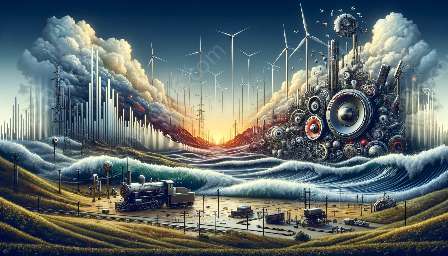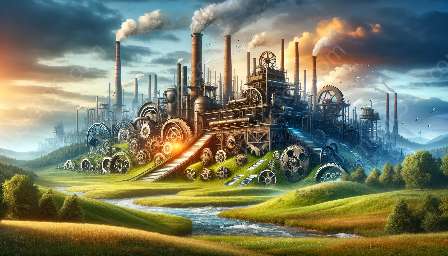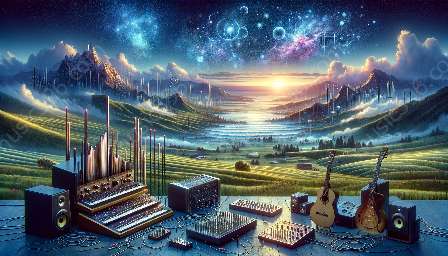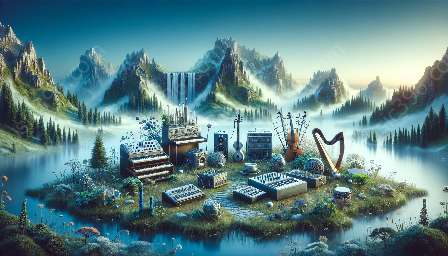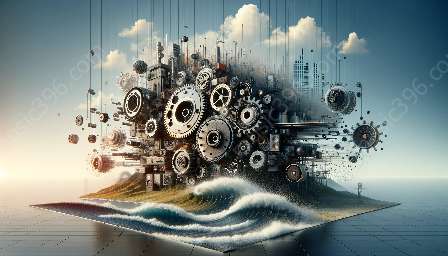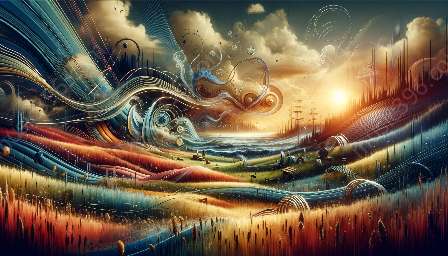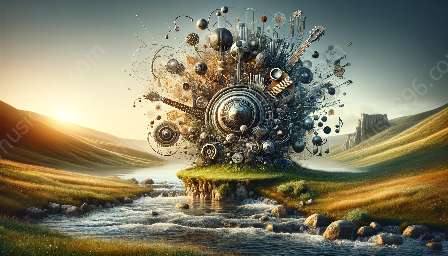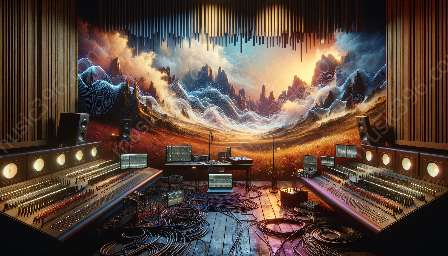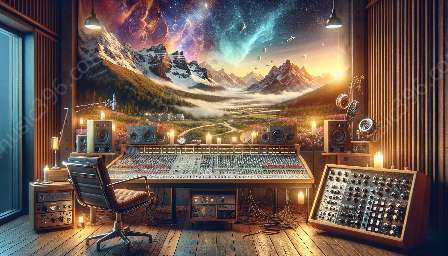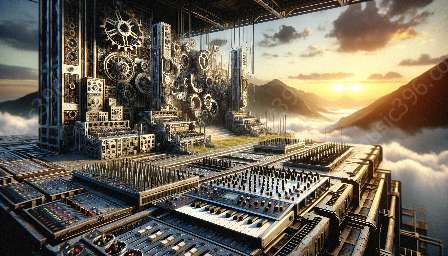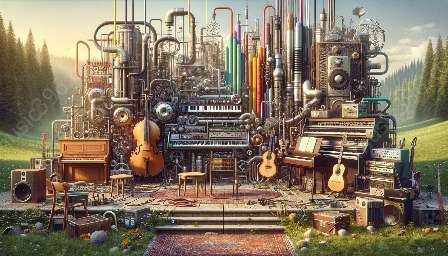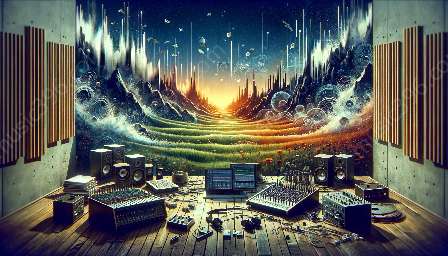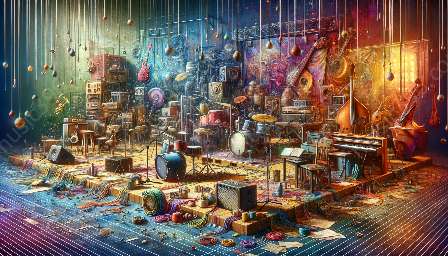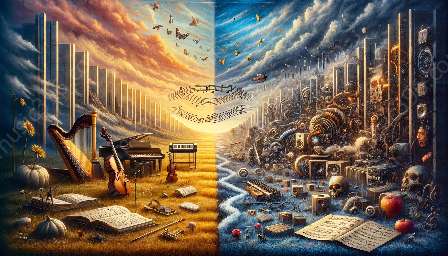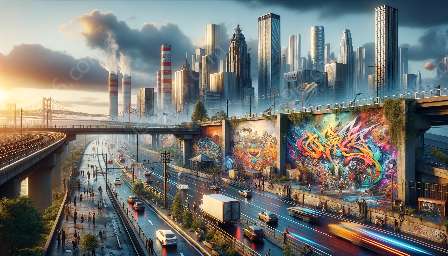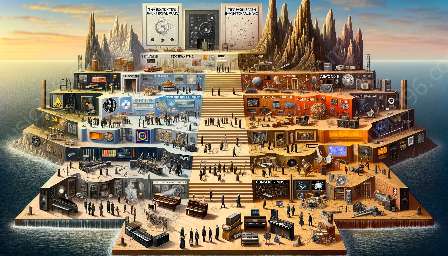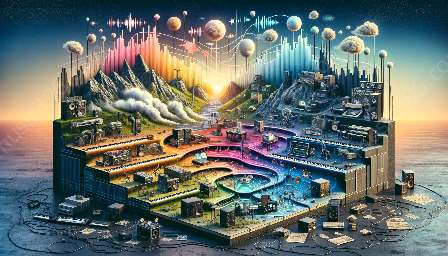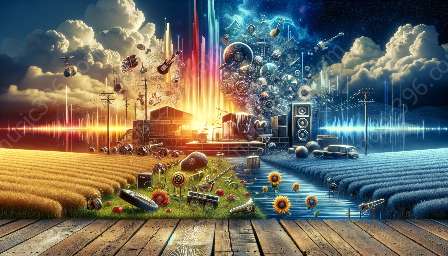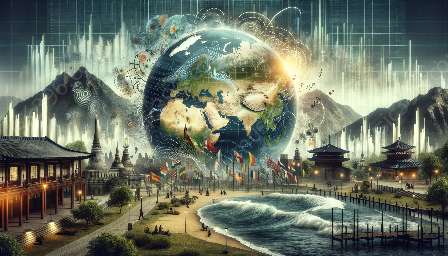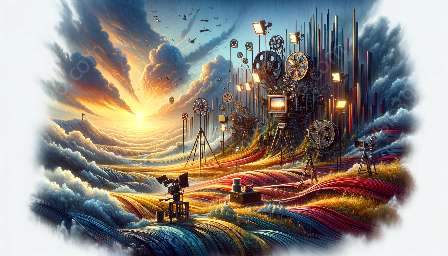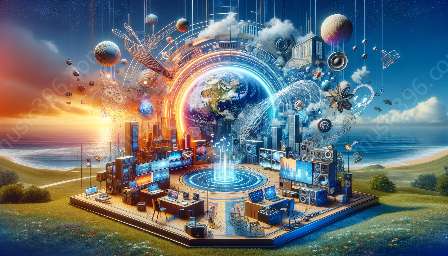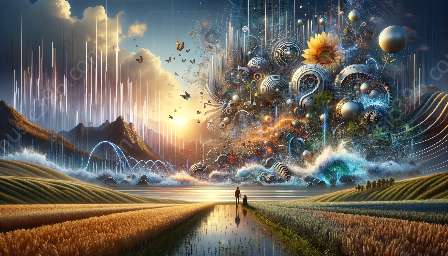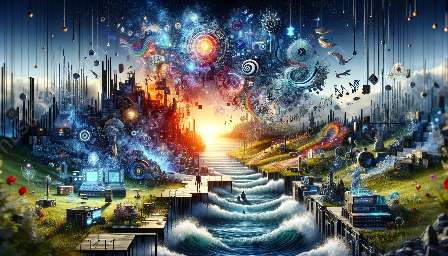Industrial music is a genre that has continuously reflected the socio-political environment of its time, influencing modern pop culture in profound ways. The impact of experimental and industrial music on modern pop is a testament to its significance in shaping the global music landscape. Let's explore how industrial music mirrors the socio-political climate and how it has influenced contemporary music.
The Rise of Industrial Music
Industrial music emerged in the late 1970s and early 1980s, characterized by its aggressive sound, use of electronic instruments, and industrial aesthetics. Its roots can be traced back to post-punk and avant-garde movements, and its evolution was significantly influenced by the socio-political landscape of the time. As industrialization and urbanization dominated the Western world, industrial music became a reflection of the dehumanizing effects of modern societies, presenting a stark contrast to the mainstream music of the era.
Political and Economic Unrest
During the 1980s, industrial music reflected the political and economic unrest prevalent in many parts of the world. Bands like Throbbing Gristle and Cabaret Voltaire addressed issues of government corruption, societal alienation, and the impact of consumerism on human identity. The industrial soundscapes and provocative lyrics served as a powerful commentary on the darker aspects of society, resonating with audiences disillusioned by mainstream narratives.
Technological Advancements
As industrial music continued to evolve, it embraced the rapid technological advancements of the late 20th century. The use of samplers, synthesizers, and drum machines allowed artists to experiment with new sonic possibilities, creating a futuristic and dystopian soundscape that mirrored the technological progress and its societal implications. The fusion of industrial music with electronic elements became a defining characteristic of the genre, reflecting the increasing influence of technology on everyday life.
Impact on Modern Pop Culture
The influence of experimental and industrial music on modern pop culture cannot be overstated. The subversive nature of industrial music challenged the norms of the music industry, paving the way for alternative and underground movements to gain prominence. Artists like Nine Inch Nails, Ministry, and Skinny Puppy introduced industrial elements into mainstream pop, expanding the sonic palette of popular music and inspiring a new generation of musicians.
Genre Fusion and Experimentation
Industrial music's willingness to experiment and blend genres has had a lasting impact on modern pop. The incorporation of industrial elements into pop songs, from heavy electronic beats to distorted vocals, has redefined the boundaries of popular music, giving rise to genres such as industrial pop and electronic rock. This crossover has brought a sense of edginess and rebellion to modern pop, reflecting the ongoing influence of industrial music.
Socio-Political Commentary in Mainstream Music
The socio-political themes explored in industrial music have permeated contemporary pop culture. Mainstream artists now tackle issues of political disillusionment, social inequality, and the impact of technology on human interaction, drawing inspiration from the confrontational spirit of industrial music. The resurgence of protest music and politically charged lyrics in modern pop is a direct result of industrial music's unapologetic commentary on societal issues.
Conclusion
Industrial music's reflection of the socio-political environment of its time has left an indelible mark on modern pop culture. Its fusion of harsh industrial sounds and provocative themes has reshaped the music industry, influencing the sonic landscape and lyrical content of contemporary music. As industrial music continues to evolve and inspire new generations of artists, its socio-political impact remains a vital force in shaping the cultural dialogue through music.


